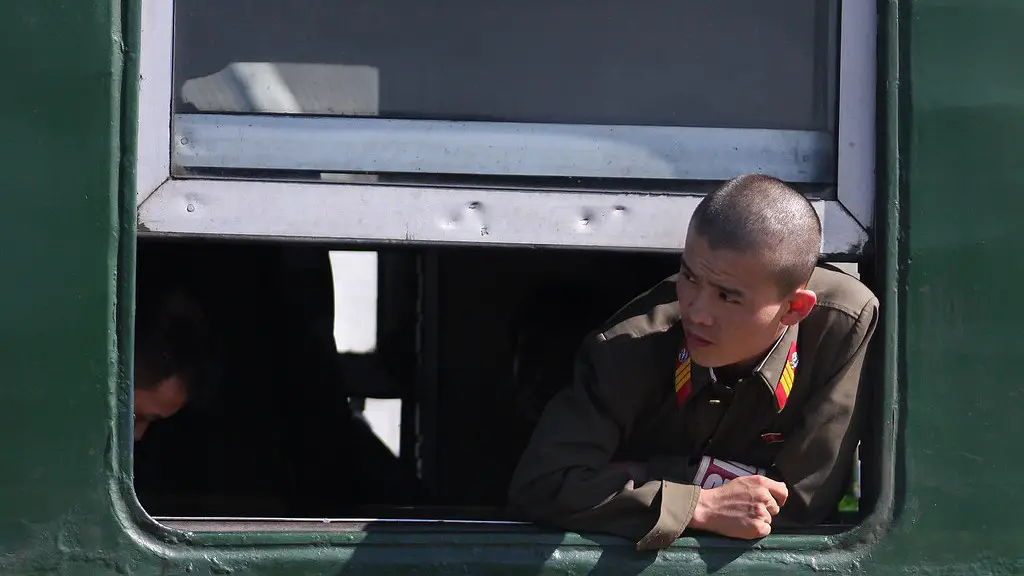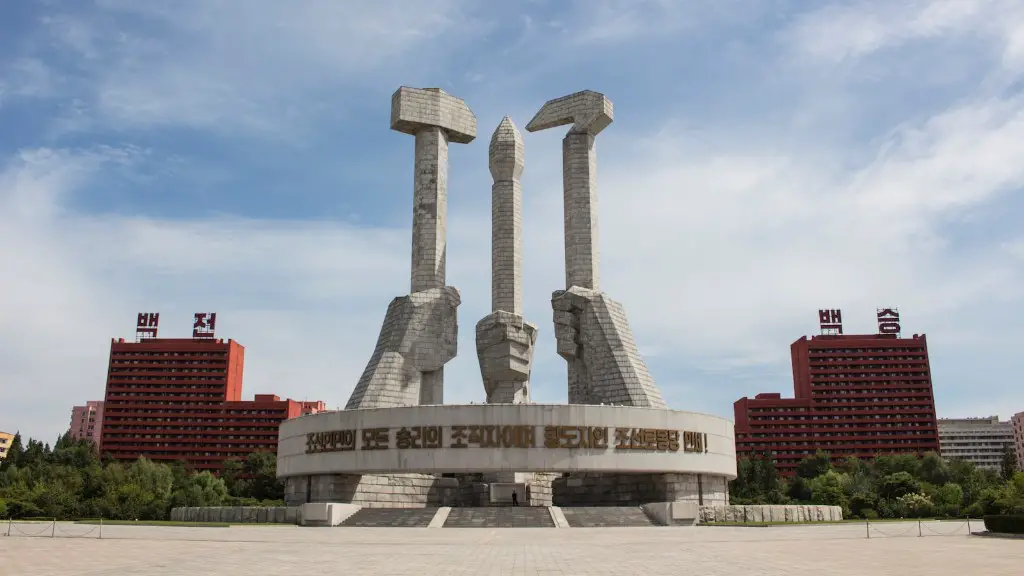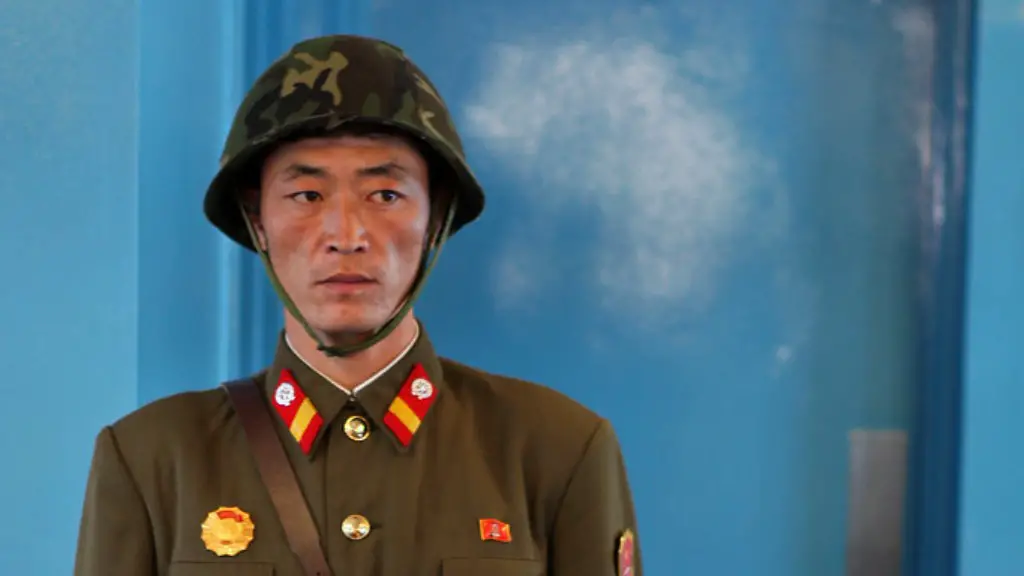North Korea continues to be a contentious and enigmatic country, both for its citizens and those observing from abroad. Tales of extreme poverty, oppressively controlled media, and the international arms race have only added to the mystery, leaving people from around the globe with intriguing opinions concerning the small, isolated country. That divides people even further, though, as those who live inside North Korea often view the state of affairs in vastly different ways than those who’ve chosen to flee and become defectors. The reality is that North Korean defectors have much to tell the world about how life inside the country truly is, and the information that they provide can be a valuable source of truth regarding the state of affairs in North Korea.
It is important to note that North Koreans defecting the country exists as a relatively new phenomenon. To begin with, few people were willing to take the risk of crossing the border. Recent populations estimates of North Korean defectors, however, show that around 33,000-50,000 refugees have made the move out of North Korea. Those who have left—either for political, economic, or security reasons—can share what life is actually like behind North Korea’s closed doors. North Korean defectors have raised awareness about the lack of freedom of expression and movement, as well as the constraints on the economy and educational system. North Korean defectors have also spoken out about the necessity to fend for oneself and the ability to think outside of the box.
The picture that the media paints of North Korean defectors is often a depressing one, unfortunately. Many perceive North Korean exiters as poor, because they are usually forced to leave their homes with few or no possessions. Most of them also experience considerable hardships and physical exhaustion during their treacherous journeys to freedom. The truth is that life after escaping North Korea is not easy, as refugees face social and financial barriers upon arrival to their new homes. This means that the complications that follow leaving their homeland make it a challenge to make a living. That said, those who have chosen to lead a new life outside of North Korea are usually grateful for the freedom they experience.
To gain a greater understanding of North Korean defectors’ views on their homeland, studies have been conducted. The results vary significantly depending on the researcher and the approach. However, regardless of their opinions, North Korean defectors have had much to say about North Korea. For example, one survey asked North Korean refugees to rate the “civil rights environment in North Korea” from 1 to 5 with 5 being the highest score. According to the survey, the response was remarkably mixed, with most giving North Korea a score of 4 or above. This indicates that North Korean defectors often still have a bond with North Korea and its people, despite the fact that they chose to defect.
For some, the decision to leave North Korea is a painful one. Many feel a sense of guilt and shame, but they also recognize that they are people of freedom and they want to enjoy the same rights and privileges as those living in other countries. Some defectors think positively of their homeland and the culture they grew up in, while others feel angry and betrayed. Most, though, say that they feel betrayed because their government took away the freedom that their parents fought so hard to protect. The conflicted emotions of guilt and shame, combined with an underlying sense of loss and betrayal, makes for an interesting and complex opinion for North Korean defectors.
Regardless of their feelings of guilt and loss, North Korean defectors often speak positively of their homeland and its people. For instance, many defectors report warm feelings towards the language, customs, food, and people of North Korea. Even though they may not agree with the government, they often show respect and admiration for the people they shared their lives with. They also express gratitude for the kindness and hospitality they experienced in North Korea, even in the face of poverty and oppression.
The Impact of North Korean Defectors
A wave of new information about North Korea came from these defectors’ stories. On one side, these defectors uncovered a heavily-censored and closely-governed version of daily life inside the country. On the other, with their stories and first-hand accounts, North Korean defectors began to expose the human rights abuses, environmental damage, and innumerable laws barring the citizens from freedoms that citizens in other countries around the world enjoy.
In addition, North Korean defectors have provided a wealth of data and insights in to the inner workings of the country, allowing those on the outside a rare glimpse of the nation beyond the media. The stories they tell of their pasts offer insight into the depth and complexity of the socio-economic system, as well as a real account of the difficulties of day to day life inside one of the most isolated countries in the world.
As a result, North Korean defectors have shed light on what it’s like living within the country and live in a place where censorship and oppressive regimes are in place, while also showing a different narrative to the one that is often showcased from the outside. Not only have they been courageous enough to escape their homeland, but they have not let go of their feelings of love and pride for the country that molded them.
North Korean defectors now constitute a strong and influential voice for North Korea’s human rights issues. Because of their willingness to share their stories and speak up for their people, there has been a marked increase in the attention on North Korean human rights as it has become one of the top international issues in recent years. This has given new leverage to the North Korean defectors’ efforts to bring about awareness and social change.
Understanding North Korea through Defectors
North Korean defectors are an invaluable source of insight in understanding the situation inside North Korea. Through their stories and the information they provide, global understanding of the country has broadened. Before, many around the world saw North Korea exclusively through the eyes of their leader and the media. With their accounts, though, the voices of North Korean people are finally being heard. They can spread the truth of the services and products the people of North Korea lack, the degree of control exercised by the government, and how widespread poverty and malnutrition is in the country.
As well, defectors provide essential economic data related to North Korea. They can emphasize the difficulties of everyday life and the unbearable conditions they had to go through before they could flee. With their testimonies, they can help to inform and engage the international community, while pressuring the government to take action. It is important to remember that the power of stories, especially in a country such as North Korea, can help to reveal the truth and facilitate change.
For example, some countries, organizations, and individuals have supported North Korean refugees, whether it’s through aid, legal assistance, or housing. As a result of these efforts, some North Korean defectors have been able to start a new life and rebuild connections with their families left behind. Furthermore, in recent years, there have been more defectors that are actively involved in campaigns and have become powerful advocates for human rights in North Korea and for North Korean refugees.
North Korea’s Relationship with Its Defectors
North Korea is considered to be one of the most oppressive countries in the world and it enforces strict laws when it comes to its citizens fleeing the country. Illegal border crossings are punishable by imprisonment or even death, and defectors are often monitored by the government even after they’ve left. Furthermore, North Korea considers its citizens to be loyal to the government, which makes it difficult for defectors to stay in the country if they do not follow this mandate.
Despite these actions, the government has taken steps to keep an open dialogue with its people and appears to be making some outreach efforts. This is a significant indication that the government acknowledges the issue of North Korea’s defectors, even if its approach that remains strict. The government is aware of the feelings of pride and patriotism that North Korean defectors have for their homeland, and as a result, have allowed some forms of connection to remain.
North Korea’s government has also taken some measures to help reunite families. In 2020, it established a “Red Cross” in Pyongyang, which acts as a liaison between North Korean defectors and family members they left behind. Through this service, they are able to send money, gifts, and messages to their relatives in North Korea. This demonstrates a willingness to reconnect with estranged citizens, which is unique for a country such as North Korea.
North Korea’s government and society have been changing slowly but surely, and North Korean defectors have played an important role in this shift. The more defectors that speak out about their experiences, the more international attention there is, leading to more progress as the North Korean government is forced to come to terms with its international obligations.
The Legacy of North Korean Defectors
North Korean defectors have had a lasting and significant impact on the world’s understanding of the nation. This is because they are able to reveal and describe the harsh realities of life inside North Korea— the poverty, deprivation, and political oppression—that many outsiders do not know about. They also represent a tremendous challenge to the government’s hold over the country, as they expose its human rights abuses and the treatment of its citizens.
North Korean defectors have started to leave a legacy—one of courage and resilience. These refugees have shown how even under oppressive rule, people can find ways to make a difference and fight for their rights. With the insight they provide, ordinary people are beginning to have a more comprehensive understanding of North Korea. Thanks to them, there is an increased worldwide focus on North Korea’s human rights situation and its people.
These defectors have also played a vital role in helping the rest of the world gain a deeper understanding of North Korean culture and history. This has been helpful in increasing cultural understanding between North Korean defectors and other nations. The life stories and experiences of North Korean defectors have helped to create a strong sense of solidarity, with people around the world being more willing to stand with North Korean refugees in their fight for freedom and justice.
The Future of North Korean Defectors
Despite their monumental impact, the lives of North Korean defectors are still a struggle. Many defectors face physical and emotional exhaustion, poverty, and language and cultural obstacles. They also often experience discrimination and ostracization in the societies they defect to, particularly if they come from rural areas. Many defectors struggle to find a regular job or an affordable place to live but despite this, they continue to search for ways to rebuild their lives in their new host countries.
There have been established support networks and initiatives to help North Korean refugees with their process of resettlement. Non-profit organizations have created programs to assist newly arrived North Korean defectors with education, employment, and housing opportunities. Likewise, the media has also become a major platform for advocacy, speaking out on behalf of North Korean refugees and providing them with a voice in the global dialogue.
North Korean defectors have made immense contributions in the past and still continue to do so today. Their current struggles cannot be ignored, and it is important that the world recognize their efforts and provide them





